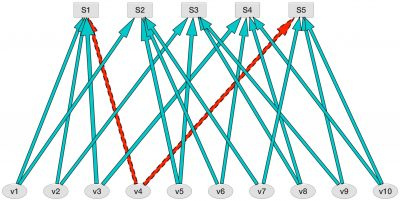Participation details: Anytime, anywhere, project has a target schedule
Description
The research question is how a genetic algorithm would perform compared to the linear programming (LP) and satisfiability (SAT) backtracking algorithms in low density parity check decoders.
This would support the Phase 4 Transponder project from Open Research Institute. Read more about that project (pdf linked in article) here: https://openresearch.institute/2020/01/10/p4xt-digital-multiplexing-transponder-project-program-proposal/
Right now the SAT implementation needs from minutes to days while using a few mega bytes to many giga bytes of ram.
The coding mentor has examples for the idea here: https://gist.github.com/xdsopl/3dee21d563196ee70b52cb9e593ba71a
We believe that a genetic algorithm would mostly run in cache, would be very parallel, and should perform very well on a modern multi-core CPU.
At a minimum, a thorough SDD will be produced by the student. Prototyping, coding, and testing follow review of the SDD.
The benefits to Open Research Institute are the exploration of a promising research question for open source LDPC decoders. The benefits to the volunteer are quality mentored experience with a modern research question and authorship of a relevant and useful software design document.

Want to get involved?
- Send a direct message through this Discourse forum to the topic author to start your conversation with them. (How do I send a message on Discourse?)
- Have some clarification questions or something to share that would benefit others looking at this topic? Feel free to reply below to add to the topic

